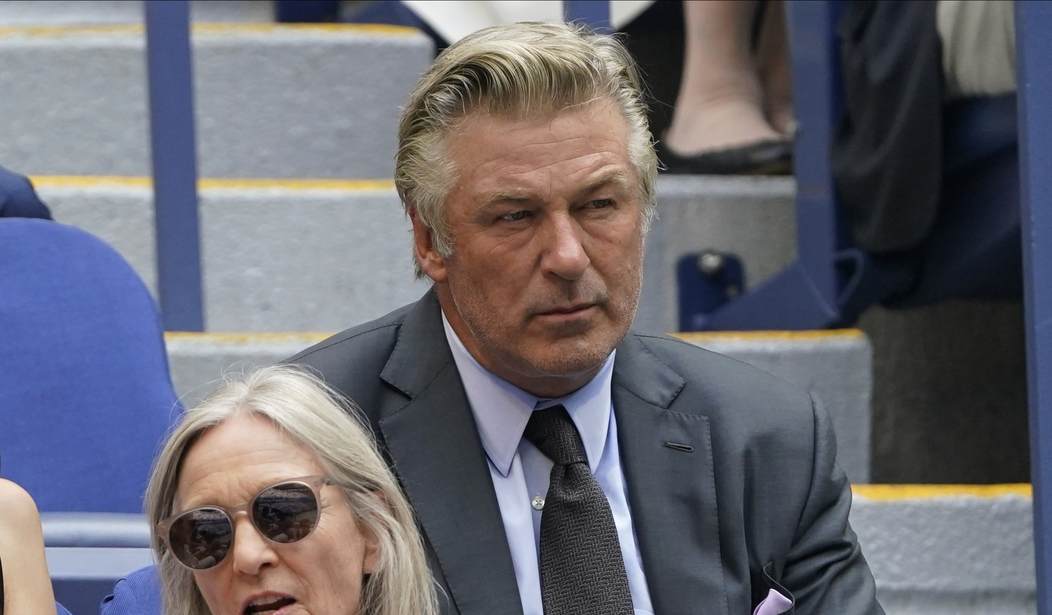Assuming this is true, we’re getting close to solving the central mystery of Halyna Hutchins’s death. Namely, how did live rounds end up in a gun on a movie set?
A few days ago TMZ reported that crew members had been using the guns for target practice during down time while filming. Last night it came out that loose ammunition was found by police when they searched the set following the shooting. All of that points to some person or persons having taken the guns during a lull in production, used them to take potshots at targets in the desert nearby, and then carelessly forgotten to remove the live rounds before returning the gun.
What was missing from that narrative was any evidence that the guns had been used for target practice *the same day* that Hutchins was shot. We have that now, courtesy of The Verge:
Crew members on the set of “Rust” used guns with live ammunition and engaged in a pastime called “plinking” hours before Halyna Hutchins was killed, founder and CEO of The Wrap, Sharon Waxman, told CNN’s Don Lemon Monday night, citing information from an individual with knowledge of the set.
One of the guns used was later handed to actor Alec Baldwin, who fired the shot that killed Hutchins, 42, and injured director Joel Souza, The Wrap reported.
“There’s this pastime that crew members sometimes do, it’s called ‘plinking,’ and they go out into the rural areas and they shoot at beer cans. This is with live ammunition. We learned that this happened the morning of the day that Halyna Hutchins was killed,” Waxman said.
Waxman claimed that “plinking” is common on movie sets during lulls in production. Uh, really? Guns are just sitting around on set, available to be loaded with real bullets and fired when they’re not being handled by actors? It’s hard to believe a diligent armorer would allow anyone to touch a weapon who doesn’t have a good reason to do so.
If she’s right about “plinking” going on the morning of Hutchins’s death, though, sit back and absorb the degree of recklessness that was happening on this set to make the shooting possible. Presumably someone in production knew that the crew was messing with the guns. Witnesses had already seen one gun on set misfire twice in the hands of Baldwin’s stunt double. If loose ammunition was floating around, that’s further cause for alarm about an ammo mix-up leading to tragedy. Under those circumstances, you would think the armorer, Hannah Gutierrez-Reed, and the first assistant director, Dave Halls, would have been downright paranoid about securing the weapons between takes and checking and re-checking them for live rounds before they were fired on set.
And if they weren’t, you would think the producers — one of whom is Alec Baldwin — would have been incensed and fired them immediately. Instead, Baldwin somehow ended up pointing his gun at Hutchins while rehearsing cross-draws. He may not face liability for accidentally firing the shot that killed her but the case that he and other producers should face liability for ignoring a parade of red flags grows by the day.
One actor on set told TMZ that he felt a scene where his character was shot by more than 20 guns was “life-threatening” and that the cast even talked about the fatal shooting of Brandon Lee in 1993. But he was vague about what troubled him specifically, saying only that it seemed strange that the camera was protected by a shield while the scene was shot but he wasn’t.
“I actually did feel the blanks hitting my face and my body. I could feel the wind from the shotgun being discharged,” [Ian Hudson] said, calling it a “terrifying” production on a “rushed schedule.”
“It was heavy. It was strong … It was life-threatening. It felt too surreal.”…
Even before Baldwin accidentally shot dead cinematographer Halyna Hutchins, actors on the New Mexico set openly discussed their fears that such a tragedy could happen, Hudson told TMZ.
“I would talk to my fellow cast members afterward, and we all agreed how intense that was and how scary and real it was,” the New Mexico local told the outlet.
Hudson said some of the actors double- and triple-checked their guns after receiving them from the armorer, Gutierrez-Reed. (He also said that director Joel Souza, who was also accidentally shot, praised Gutierrez-Reed for being safe and “speedy.”) That could be important if Baldwin ever ends up on trial. Is it common industry practice for actors to check their weapons before a scene, just to be extra safe? If so then Baldwin’s failure to do so before shooting Hutchins looks more negligent even though Halls told him the gun was “cold.”
The most interesting thing Hudson told TMZ was that he didn’t speak up about his safety concerns because he was a “new actor” and didn’t want to make powerful enemies in the industry. A Hollywood FX and firearms expert echoed that point in an interview with the New York Post: “An old wiseass like me would say, ‘I’m not going to compromise safety,’ but most people won’t say that because of fear they’ll be fired.” That’s another way in which the low budget for “Rust” may have made an accident much more likely. They were rushing to finish the shoot in 21 days, which may have compromised diligence. They hired a newbie armorer in Gutierrez-Reed presumably to save money at the cost of sacrificing expertise. And they probably filled out the cast with lower-paid actors who wouldn’t want to jeopardize future work by getting on the wrong side of Baldwin or his production team by complaining about safety. The result was a disaster.








Join the conversation as a VIP Member